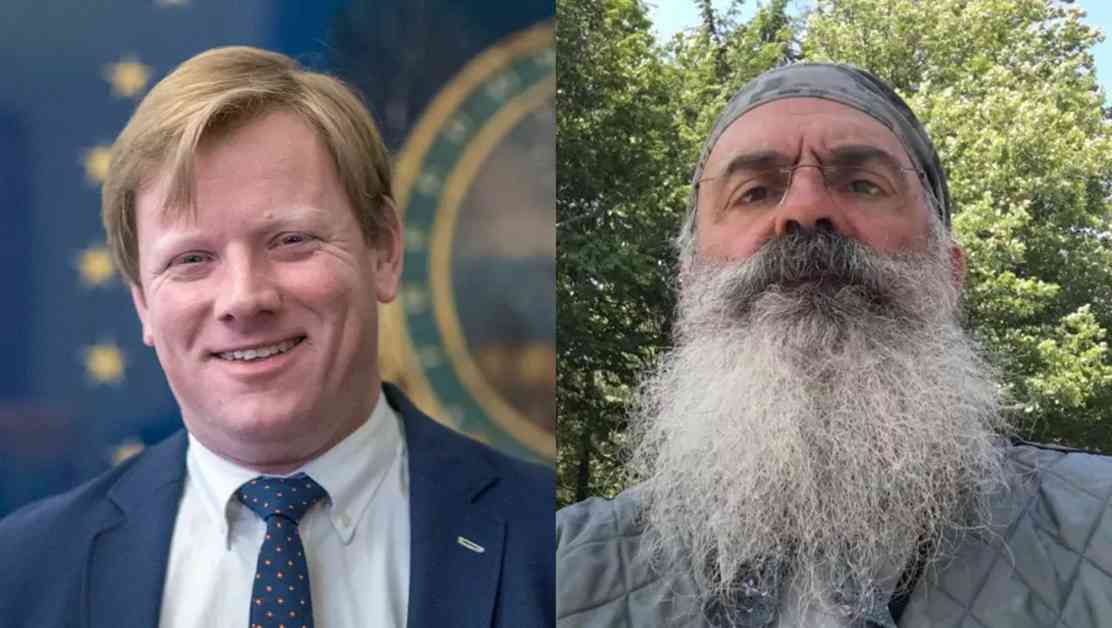Vermont Lawmakers Uphold Contested Election Results in Bennington Race
In a recent decision that stirred the pot of partisan politics, Vermont lawmakers opted to stand by the election results of a closely contested House race in the Bennington area. Despite significant ballot errors that could have influenced the outcome, the House of Representatives voted 91-42 to uphold Rep. Jonathan Cooper’s victory, dismissing a challenge from his Republican rival, Bruce Busa.
The election, which saw Cooper defeat Busa by a mere 23 votes, raised eyebrows when it was revealed that approximately 56 voters in the district received ballots with incorrect House candidates listed. In a puzzling mix-up, voters in Pownal were presented with candidates from the neighboring Bennington-5 district instead of those in their own Bennington-1 district, which encompasses Pownal, Readsboro, Searsburg, Woodford, and Stamford.
This error stemmed from a redistricting effort in 2022, where town officials in Pownal failed to accurately delineate the new boundary separating the two districts. The subsequent House decision, backed by a near-unanimous committee vote, triggered a heated debate among lawmakers, with Democrats defending the outcome while Republicans cried foul.
Representative Chris Keyser of Bennington posed a poignant question, “What message are we sending to candidates and voters? Are we saying that uncounted votes don’t matter?” Meanwhile, Rep. Casey Toof from St. Albans Town expressed his dissatisfaction, stating, “I feel like some people were left out of the election decision, and that’s just not OK with me. I think we owe it to the people to get this right.”
Bruce Busa, the thwarted Republican candidate, didn’t mince words in condemning the House’s ruling, characterizing it as a blow to democracy. Secretary of State Sarah Copeland Hanzas initially pushed for a revote but backpedaled upon realizing the logistical complexities involved.
Rep. Matt Birong, chair of the House Government and Military Affairs Committee, emphasized the lack of historical precedent for overturning an election result, underscoring the committee’s extensive fact-finding process. Testimonies gathered over weeks illuminated the impracticality of staging a new election, which could potentially disenfranchise more voters than the initial contest.
The logistical challenges and exorbitant costs associated with a revote further swayed the committee’s decision. Moreover, the pressing need to prevent similar mishaps in the future prompted plans for legislation to review voter rolls statewide. While Busa’s earlier legal challenge was dismissed on constitutional grounds, the House’s authority to validate election results was affirmed.
Representative Michael Nigro of Bennington acknowledged the imperfect nature of the decision, recognizing the weight of ensuring the electorate’s voice was upheld. Dismissing the votes of 2,500 constituents to rectify a mistake affecting 56 individuals and orchestrating a new election with a potentially diminished turnout hardly aligned with the essence of democracy, he argued.
As the dust settles on this contentious verdict, Vermont lawmakers remain committed to upholding the integrity of the democratic process while learning from the missteps that marred the Bennington House race. The road ahead is fraught with challenges, but the resilience and determination exhibited by those involved reflect a shared commitment to safeguarding the fundamental principles of democracy.
The author, Kevin McCallum, is a seasoned political reporter renowned for his insightful commentary on state governance and legislative affairs. His nuanced perspective sheds light on the intricate tapestry of Vermont’s political landscape, capturing the essence of a decision that reverberated through the corridors of power.










